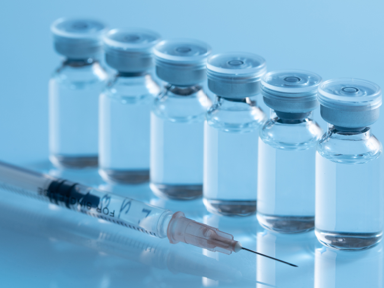expresspharmaJuly 12, 2021
The World Health Organization (WHO) is likely to take a decision on including Bharat Biotech’s COVID-19 vaccine Covaxin in the emergency use list (EUL) within four to six weeks, Soumya Swaminathan, the global health body’s chief scientist has said.
Speaking at a webinar organised by the Centre for Science and Environment (CSE), Swaminathan said the WHO is reviewing Covaxin as its manufacturer Bharat Biotech is now uploading its entire data on the health body’s portal.
According to WHO guidelines, EUL is a procedure to streamline the process by which new or unlicensed products can be used during public health emergencies.
“There is a process to be followed for EUL and pre-qualification of vaccines under which a company has to complete phase 3 trials and submit the whole data to the regulatory department of WHO which is examined by an expert advisory group,” Swaminathan said.
“The completeness of the data, which includes safety and efficacy and also the manufacturing quality, standard is provided. So, I expect that Bharat Biotech has already submitted data and in four to six weeks there will be a decision on its inclusion,” Swaminathan added.
At present, the WHO has approved vaccines by Pfizer/BioNTech, Astrazeneca-SK Bio/Serum Institute of India, AstraZeneca EU, Janssen, Moderna and Sinopharm for emergency use.
“We currently have six vaccines approved with EUL and have recommendations from our Strategic Advisory Group of Experts (SAGE). We continue to look at Covaxin. Bharat Biotech has now started uploading their data on our portal and that is the next vaccine that will be reviewed by our experts committee,” the chief scientist said.

She also mentioned the WHO Research and Development Blueprint prepared in 2016, shortly after the Ebola outbreak, in which a research roadmap for diseases with pandemic potential was laid out.
“I want to mention the Research and Development (R&D) Blueprint. I think we need to think about how we can do better in the future in terms of development of not just vaccines but drugs, diagnostics and ensuring equitable access. This blueprint was developed after the Ebola outbreak and essentially it laid out a research roadmap for diseases which have pandemic potential,” she said.
“So, when the roadmap was developed in 2016, it mentioned ‘Pathogen X’ in it which showed that we were anticipating a pandemic, which is now COVID-19,” she added.
Swaminathan also said the roadmap essentially laid out the steps in terms of developing target product profiles – like standards for vaccines, diagnostics regulatory standards, trial designs, and trial simulators.
“This pre-thinking helped because WHO was able to bring together scientists, researchers, academics and companies at the beginning of last year to develop a research roadmap for COVID,” she said.
At present, there are 105 candidate vaccines in clinical evaluation out of which 27 are in phase three or four, she said.
There are another 184 candidate vaccines in preclinical evaluation. Most of the vaccines are designed for a two-dose schedule, she added.
The WHO chief scientist also said the Delta variant of the coronavirus is very transmissible.
“Two complete doses are required for protection against the Delta variant but you can still get the infection and can transmit it. This is why masking and other precautions are important to continue,” she said.
Talking about some companies stressing the need to develop a booster dose after two vaccine shots doses to protect people, Swaminathan said, at this point there is no data to indicate if a booster dose is required.
“Science is evolving. At this point, we don’t have data to indicate that everyone will need a booster and is it going to be after one year or two years. But data from follow up studies of vaccinated people are very encouraging and is showing that immune responses are lasting up to 8, 10 or even 12 months,” she said.
“A few studies that have looked at giving booster dose after six months have shown that it can increase the antibody levels so high that they can protect against all variants. What we know is you need a high level of antibodies, whether it’s through a booster or the first course. We need more studies and see which vaccines will require a booster and when. It could be possible that a combination of two different vaccines is administered in future but these are all being looked into through research and so we have to wait,” she said.


Contact Us
Tel: (+86) 400 610 1188
WhatsApp/Telegram/Wechat: +86 13621645194
Follow Us:




 Pharma Sources Insight January 2025
Pharma Sources Insight January 2025


